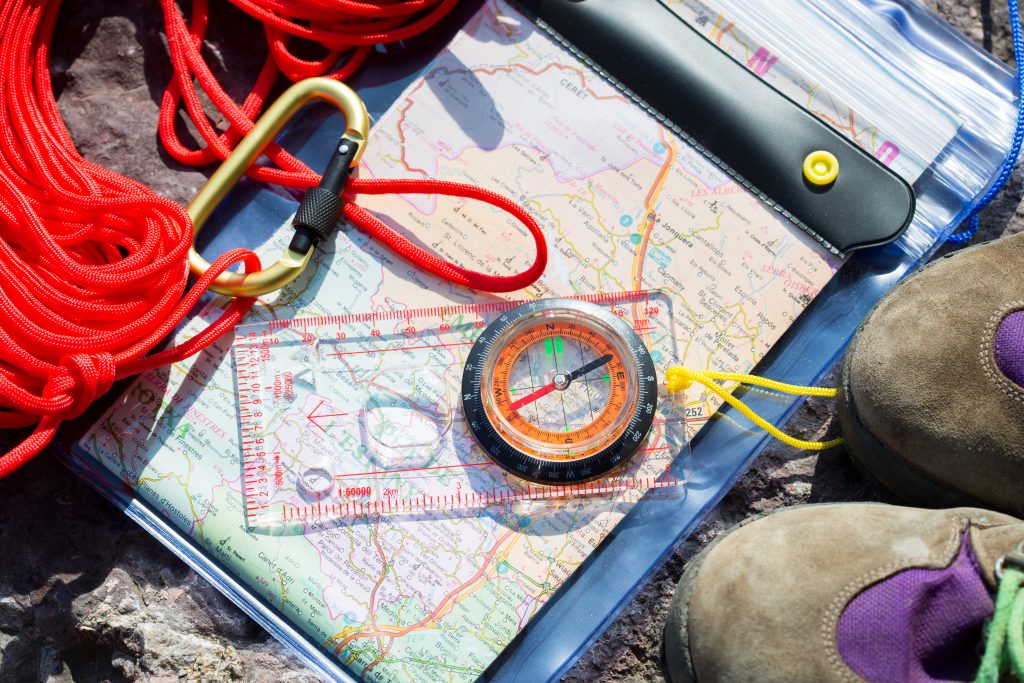A love for adventure travel often encourages people to initially become business owners within the industry, but in the flurry of branding a company, hiring employees, and promoting products and services, few people consider how to leave the business as well. Yet proper planning from the very early stages of a company’s founding can help guide a business toward its long-term goals and eventually provide a seamless and painless exit when it’s finally time to bow out.
Someone may want or need to give up ownership of a company for a variety of reasons. Sometimes things just aren’t profitable, and bankruptcy is necessary. Perhaps a company has been profitable, but it’s time to retire and pass it on to the next generation of the family. For the purposes of this article, we’ll assume the position most travel companies are likely in — not facing bankruptcy nor having a family member to whom to pass the business but simply ready to retire or sell the business and move on.

There are two ways for people to sell a company: sell the entire company including all their shares of it or sell off the assets (such as the established business relationships, client contact information, and equipment like road bikes or hiking equipment). Occasionally companies evaporate — or simply shut down — due to the fact they don’t hold much value or the people selling believe assets are worth more than they are willing to sell for so no buyer can be found.
Timing
“Selling when you’re retiring is actually not the best timing,” Mona McPhee, a travel and tourism lawyer at Miller Nash Graham & Dunn LLP based in Seattle, Washington. This is because the timing is pegged to this specific event, and market conditions are often not as ideal as they could be. The actual ideal time to sell, she said, is right before a company is ready to take off in a big way. “You put in all the foundational work, it’s starting to grow, it’s getting bigger, and now you’ve positioned yourself to start scaling — that’s actually the best time to put the company up for sale,” McPhee said, though she noted that’s rarely what people working in adventure travel do because they’re often in the business because they love it, not to reap financial benefits from it.
Additionally, the time when a business owner decides to sell is not the ideal time to be thinking about the exit planning process either. In fact, the best time to think about how to leave the industry is at the very beginning of a company’s creation. “When I meet with someone who is just starting out in the industry or just starting a new company, I often ask them about what their exit strategy is at the front end, because if they’re thinking about that, that can affect what business model they ultimately adopt and how they put their resources into different things that need to happen on the front end or as the business is growing,” McPhee said.
For companies built with an exit strategy in mind — with all accounting and systems in place with the intention to sell the company — the exit process can take six to eight months, pending finding the right buyer. Realistically, however, this is more likely to be a three-year process, primarily due to the fact business owners need to make decisions about retirement or their next steps in life, get taxes and records in order, and ensure all liabilities are properly recorded. “Timing is driven by preparation,” McPhee said. “If you’re already running your business with all your ducks in a row anyway, then that timing is dramatically decreased.”
Valuation
A company’s value is, of course, one of the main considerations when preparing to sell. Over time, companies gain value, and it’s not just the products or services that hold value but also established relationships with clients, suppliers, sellers, and employees. “It’s worth hiring a consultant or company that does valuations,” McPhee said. “They’ll look at the past client list, what your tours are, and what the scalability of your company and your processes are.” For example, potential buyers may be interested in purchasing companies that have a solid business model ready to expand into new destinations or enhance existing tours a potential buyer already offers. This is where companies hold a lot of untapped value that makes them attractive.
In the adventure travel space, this scalability can be particularly powerful. Potential buyers may very well be adventure travel companies offering similar tours interested in expanding their geographical reach or companies working within a similar geographic area but interested in expanding their product offerings. For example, KE Adventure Travel, which was founded in 1984, was acquired by Voyageurs du Monde, a French company, in July 2017. “They do very, very well in the French market, and they saw us as a bridge into the English-speaking market,” said Tim Greening, a co-founder of KE Adventure Travel. In fact, the two companies had worked together for about 10 years.
“If you want to sell a company, it’s harder if you’re advertising to sell. You’re not going to get as good of a price than if you’re approached, if people want to buy you,” Greening said. “People want to buy you if you’re running a good business. If you have a good set of accounts, you have good staff, you have a great history. If you’re running a good business, people will approach you in the end.”
Process
Business owners only get one shot at negotiating a sale prior to presenting an offer to a potential buyer. Before these negotiations, it’s important to carefully consider all the terms of the sale and what benefits or role business owners want to maintain during and after the transition. This may include retaining specific perks of the job, such as the ability to travel for the company, or negotiating the ability to remain employed by the company in a certain capacity or for a certain period of time.

Whether they’re just getting started, comfortably situated with their company, or are considering selling, there are a number of things business owners can do now to make the exit process significantly easier later; most notably, complying with best practices and legal requirements, which include taxation and accounting. “Best practices include really good record keeping, maintaining copies of all your contracts and relationships, and maintaining them in an organized fashion,” McPhee said.
Though these are the kinds of tasks that can be pulled together at the last minute, it is much easier if businesses manage these details over the lifetime of a company. On the legal side, this means ensuring a company is properly licensed in the places in which it is based and operates, and paying and maintaining proper tax records. Additionally, finances should be in order for at least three years prior to selling, and insurance policies need to be properly documented. Keep detailed records on all communication with potential buyers as well.
It is possible for someone to sell a company on his or her own, but McPhee recommends sellers work with legal counsel and a financial consultant to ensure everything is legally and financially sound. In the adventure travel industry, where companies may be dealing with international assets or selling to international buyers, she notes things can be even more complicated. “On the international side of it, certainly the taxation issue is going to be anywhere from more complex to ridiculously complex and costly,” she said, and this is where hiring the right help from the beginning of the exit planning process helps lay the groundwork for a smooth sale.
Business owners don’t have to go through the exit process alone, however, and one of McPhee’s key pieces of advice touches on one additional person who can assist from the very beginning: “If you are a passion-driven tour operator who’s in it for the travel and the human connection — if you don’t consider yourself a business person and you’re learning on the job — that’s yet another person to bring into your team: the business person.” His or her job is to pull all of the business-related pieces together while helping to keep the emotional aspects at bay, and there are people working in the adventure travel space who specialize in this area. “It’s those people who can see the industry and your business’s place in it to help you,” she said.
